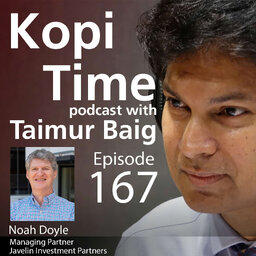Kopi Time E142 - Tech and security with Gaurav Keerthi
Gaurav Keerthi, Head of Advisory and Emerging Business at Ensign InfoSecurity, joins Kopi Time to provide a fascinating overview of the current state of affairs in cybersecurity. We begin with the intersection of geopolitics and cyberattacks. From state sponsored defensive and offensive teams to independent actors with a range of motives, the number of agents attacking the integrity of national power grids, airports, water supply, along with healthcare and education systems, has proliferated at an extraordinary pace in recent decades. In addition to nations, large companies and individuals face millions of attacks a day that are increasingly sophisticated. Even with a tiny fraction succeeding, cyber crimes have become an economy worth hundreds of billions of the dollars. Gaurav works through the processes behind building systems that are not 100% immune from cyberattacks, but capable of bouncing back in the event of an attack. With AI in play already, and quantum on track to disrupt cryptography, new waves to technology are making cyber defence more challenging, but the same tech is also being used to build tools and practices for higher degrees of surveillance and resilience. Gaurav’s views are more realistic than pessimistic, focused on risk management. A must listen.
 DBS Economics & Strategy
DBS Economics & Strategy


